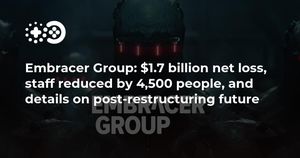The potential ban on TikTok has reached fever pitch as the U.S. government navigates high-stakes negotiations surrounding the popular social media app. President Donald Trump recently signed an executive order giving TikTok and its parent company, ByteDance, 75 days to find solutions to avert the looming restrictions.
This order, which was issued on January 20, 2024, is pivotal as it allows TikTok to operate without immediate penalties, even after the Supreme Court upheld legislation manding its divestment from the Chinese company. "I intend to consult with my advisors, including the heads of relevant departments and agencies on the national security concerns posed by TikTok..." Trump stated, emphasising the urgency to safeguard national interests without shutting down services for 170 million Americans.
The Supreme Court ruling has cast suspicion over TikTok's data practices, sparking fears related to the app's ties to China. Should TikTok fail to comply with U.S. legislation requiring its sale to American companies by the deadline of January 19, it risks being banned altogether. Such drastic action would follow months of contentious debates about privacy, data security, and foreign influence over American users' information.
Trump hinted at possible drastic measures should negotiations not yield positive outcomes. "If we make the right deal, we'll do it. Otherwise, we won't..." he commented during subsequent press interactions. The seriousness of this situation is compounded by TikTok’s plans to "go dark" if it does not receive clarity about legal repercussions surrounding continued operations this week. TikTok attorney Noel Francisco reflected this gloom, stating, "Essentially, the platform shuts down." He voiced concerns about the ramifications of the law as users frantically seek solutions to save their content.
Simultaneously, Trump suggested potential tariffs on China of up to 100% if it refuses to cooperate, along with the idea of the U.S. taking a 50% stake to keep TikTok running. This proposal aims not just to address consumer needs but to leverage significant financial stakes as part of U.S. interests. The discussion has also initiated talks of establishing a sovereign wealth fund to manage funds possibly acquired from tariffs to finance the purchase of TikTok.
The Treasury and Commerce Departments are set to spearhead this initiative, which Trump suggested could substantially bolster national security investment needs across various sectors. Secretary of the Treasury Scott Bessent mentioned, "I think it’s going to create value and be of great strategic importance," adding weight to these measures planned under direct oversight of the next administration.
Users are gathering their resources as the deadline nears. Reports suggest Americans are encouraged to download their content from the app, should it fall victim to the ban. The steps are relatively simple, as users can navigate to their favorite videos or photos and save them directly to their devices. It raises the pressing question—what will become of the millions who rely on TikTok for their social interactions and content creation?
If the app does disappear, users may naturally lean toward alternatives like Instagram's Reels or YouTube Shorts, both of which offer similar short-form video content but lack the community and cultural aspects specific to TikTok.
White House Press Secretary Karine Jean-Pierre addressed the media, calling TikTok's threats to shut down its platform "a stunt." She urged the app not to take preemptive actions leading up to recent government discussions, stating, "We have laid out our position clearly; actions to implement this law will fall to the next administration." This highlights the uncertainty of TikTok's fate, hinging on the legal maneuvers of currently leading political figures.
Experts have voiced concerns about what legal repercussions TikTok faces if these bans come to fruition. Views vary on whether existing users would still be able to engage with the already downloaded version of TikTok, with insights indicating they may retain some access initially but would be deprived of new updates—as potential bans take shape.
Despite the looming threats, TikTok's cultural significance and user engagement remain undeniable. Keeping the app viable has become not only about business strategies but about community. Observers and users alike are left pondering whether TikTok can outmaneuver federal restrictions or if American digital life will change dramatic overnight.



